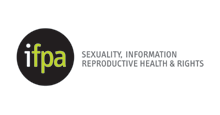Ireland’s restrictive abortion laws will once again be under international scrutiny when they are examined this week (14-15 July 2014) in Geneva by the United Nations Human Rights Committee in its formal review of Ireland under the International Covenant on Civil and Political Rights (ICCPR).
In its submission to the Committee, the Irish Family Planning Association (IFPA) – and other civil society organisations – highlighted that the Protection of Life During Pregnancy Act is far from sufficient to bring Ireland into compliance with its international human rights obligations.
IFPA CEO Niall Behan stated: “Under the new legislation, doctors must make the medically unsound distinction between a risk to a pregnant woman’s life and a risk to her health. Life and health are so intrinsically linked that the requirement to draw a line between them prevents doctors from acting in the best interests of their patients.”
The IFPA told the UN human rights experts that the Act places new barriers in the way of accessing lawful abortion: “Women must go through several legal processes to access their right to an abortion. These are especially onerous -indeed cruel and inhuman- for women with mental health problems.”
“Women still cannot access an abortion where there is a threat to their health, in cases of foetal anomaly, rape or incest, or in other circumstances where a woman knows that parenting is not the right choice in her particular circumstances,” said Mr Behan.
“Until abortion is decriminalised by amending the Constitution and existing legislation reviewed, thousands of women will still travel to the UK for an abortion each year, in violation of their rights under the International Covenant on Civil and Political Rights.”
“The Human Rights Committee urged the State to bring its abortion laws into conformity with international human rights in 2008. The failure to do so six years on shows disdain for women’s dignity and their right to health,” concluded Mr Behan.
Notes
- On 14 and 15 July, the UN Human Rights Committee will conduct the fourth periodic review of Ireland’s implementation of the International Covenant on Civil and Political Rights (ICCPR) in Geneva. The list of issues which the Committee will examine includes four questions related to Ireland’s restrictive abortion laws.
- The Human Rights Committee is a committee of independent human rights experts that monitors implementation of the International Covenant on Civil and Political Rights by its State parties. The experts are elected for a term of four years by States parties in accordance with articles 28 to 39 of the Covenant.
- Read the IFPA’s submission to the Human Rights Committee here.
- In its reply to the Committee’s list of issues in relation to the fourth periodic review of Ireland, the Government stated that there are currently no proposals to amend 40.3.3 of the Constitution.[i]
- The Human Rights Committee previously criticised Ireland’s laws on abortion in its concluding observations in 2008 and 2000, urging the State to “bring its abortion laws in line with the Covenant”.[ii]
- Other UN treaty bodies that have expressed concern regarding Ireland’s restrictive abortion laws include the Committee Against Torture (CAT) in 2011 and the Committee on the Elimination of Discrimination against Women (CEDAW) in 2005 and 1999. Concern on Ireland’s restrictive abortion laws was also highlighted during the Universal Periodic Review of Ireland in 2011, by the European Court of Human Rights in 2010 and by the Council of Europe Human Rights Commissioner in 2008.
- Since 1980, at least 159,779 women and girls from the Republic of Ireland have travelled abroad to access safe and legal abortion services. More.
- The overwhelming consensus throughout Europe allows for access to legal abortion to protect a woman’s health and well-being. 44 out of 47 European countries provide for abortion to protect a women’s health. Ireland is the only country in the Council of Europe that permits abortion to protect the life but not the health of a woman.
[i] List of issues in relation to the fourth periodic report of Ireland. UN Doc CCPR/C/IRL/Q/4 (2013), paragraph 6.
[ii] Concluding Observations of the Human Rights Committee, 93rd session, 30 July 2008, UN Doc CCPR/C/IRL/CO/3, para 13. Concluding Observations of the Human Rights Committee, 69th session, 24 July 2000, UN Doc A/55/40 (Vol 1), paras 444-445.

